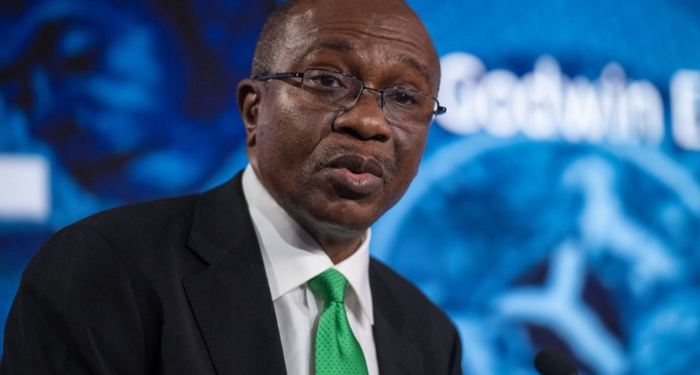Quick Summary
- Court documents revealed that Emefiele earned N350 million annually as CBN Governor, with additional N75 million in quarterly reimbursements and over $6 million in estacodes.
- The Court of Appeal overturned a previous asset forfeiture ruling, ordering a retrial due to insufficient evaluation of evidence.
- The court upheld the forfeiture of $2 million in cash but disagreed on the forfeiture of Emefiele’s properties.
- Emefiele’s total compensation places him among Nigeria’s top earners, comparable to high-profile CEOs.
A certified court document has revealed that former Central Bank of Nigeria (CBN) Governor, Godwin Emefiele, earned N350 million annually during his tenure. In addition to his salary, he received N75 million in quarterly reimbursements and over $6 million in estacodes for international travel.
Court of Appeal Overturns Asset Forfeiture Order
These revelations came to light during the ruling of the Court of Appeal, Lagos Division, which overturned a final forfeiture order previously granted against Emefiele’s properties and assets.
In a split decision delivered on April 9, 2025, the appellate court held that the Federal High Court had not properly assessed the full evidence in the original forfeiture proceedings. Consequently, the ruling was set aside, and the court ordered a fresh hearing.
The court document read:
“At the risk of prolixity, it should be noted that the appellant stated at paragraph 5 (a), (r) and (v) of his affidavit to show cause, why the properties should not be forfeited. When the appellant left Zenith Bank, his severance allowance was N1.75 billion, while his Zenith Bank shares were valued at N500 million. As CBN Governor, his annual pay was N350 million with quarterly reimbursements of N75 million, excluding estacodes amounting to $6,285,000; see page 531 of the record of appeal.”
Background: EFCC’s Forfeiture Case Against Emefiele
The case originated from a November 1, 2024, judgment by the Federal High Court in Lagos. The court granted the Economic and Financial Crimes Commission (EFCC) a final forfeiture order for multiple high-value properties allegedly linked to Emefiele.
According to the EFCC, the properties were suspected to be proceeds of unlawful activities. The agency claimed that Emefiele acquired the assets through proxies, corporate entities, and companies that could not be directly connected to him.
The EFCC argued that Emefiele failed to show proof of legitimate sources of funds used in the acquisitions. Additionally, the companies named in the transactions did not challenge the forfeiture.
Emefiele’s Defense and Income Declaration
In his defense, Emefiele presented income records from his time as Managing Director at Zenith Bank and throughout his 10-year tenure as CBN Governor.
Justice Abdulazeez Anka, who delivered the lead judgment, noted that based on Emefiele’s declared earnings, he could legitimately afford the assets in question. The judge also pointed out that there were material conflicts in the affidavit evidence from both sides, which required resolution through oral testimonies and cross-examination.
Court Faults Affidavit-Only Trial Process
The appellate court criticized the initial forfeiture trial for relying solely on affidavit evidence without allowing a full trial.
Justice Anka emphasized that such a sensitive case needed live witnesses and cross-examinations to test the credibility of the claims. He also faulted the Federal High Court for dismissing Emefiele’s request for a stay of proceedings and not hearing his motion against the EFCC’s counter-affidavit.
The case was returned to the Chief Judge of the Federal High Court for reassignment to another judge for a fresh trial.
Appellate Court Highlights Asset Declaration Gaps
Justice Mohammed Mustapha, who agreed with the lead judgment, stressed that it was not unusual under Nigerian law for properties to be held in trust by another party.
He referenced Emefiele’s Code of Conduct forms from 2014 and 2019, which declared joint assets with his wife. However, Mustapha pointed out that most of the disputed assets were acquired between 2020 and 2023 and would typically be declared in the subsequent 2023 asset declaration, which was not presented in court.
$2 Million in Cash Forfeiture Upheld
Although the court overturned the forfeiture of some properties, it upheld the final forfeiture of $2,045,000 in cash, which Emefiele did not contest.
However, the appellate justices were divided. Justice Danlami Senchi, in a dissenting judgment, argued that the EFCC had adequately proven its case and that the forfeiture should stand.
Justice Senchi believed that there was no conflict in the affidavit evidence and that calling for a full trial would delay justice. He upheld the initial forfeiture order and dismissed Emefiele’s appeal.
Key Details About Emefiele’s Earnings
The disclosure that Emefiele earned N350 million annually, along with N75 million in quarterly reimbursements and over $6.2 million in estacodes, brings his total benefits to at least N650 million per year, excluding other travel allowances. This places his compensation among the highest in Nigeria’s public and corporate sectors.
According to Nairametrics’ 2024 CEO pay report, Nigeria’s top 10 highest-paid Chief Executive Officers collectively earned N11.6 billion in 2024, up from N7.9 billion in 2023.
Among these executives:
- Dame (Dr.) Adaora Umeoji, Zenith Bank’s Group MD/CEO, earned N874 million in 2024 despite her mid-year appointment.
- Segun Agbaje, Group CEO of GTCO, earned N471 million and led GTCO to N2.1 trillion in revenue and N1.26 trillion in pre-tax profit in 2024.



















Leave a Reply